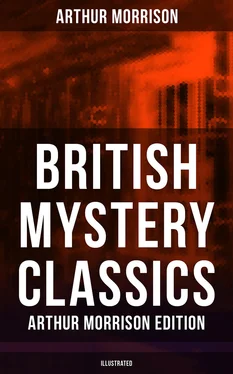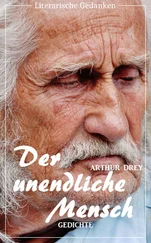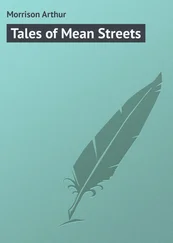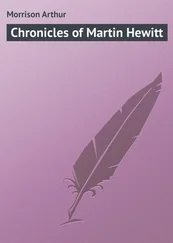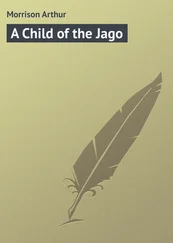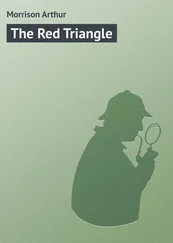“Now, I remembered that, when we went into the tap-room on Wednesday, some of his companions were chaffing Crockett about a certain Nancy Webb, and the chaff went home, as was plain to see. The woman, then, who could most easily entice Sammy Crockett away was Nancy Webb. I resolved to find who Nancy Webb was and learn more of her.
“Meantime, I took a look at the road at the end of the lane. It was damper than the lane, being lower, and overhung by trees. There were many wheel-tracks, but only one set that turned in the road and went back the way it came, toward the town; and they were narrow wheels—carriage wheels. Crockett tells me now that they drove him about for a long time before shutting him up; probably the inconvenience of taking him straight to the hiding-place didn’t strike them when they first drove off.
“A few inquiries soon set me in the direction of the Plough and Miss Nancy Webb. I had the curiosity to look around the place as I approached, and there, in the garden behind the house, were Steggles and the young lady in earnest confabulation!
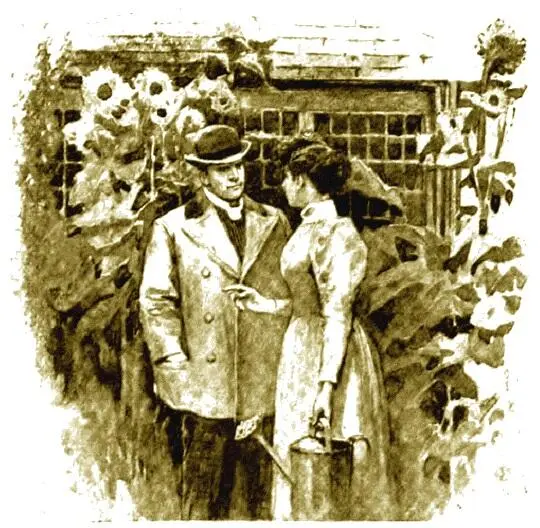
“Every conjecture became a certainty. Steggles was the lover of whom Crockett was jealous, and he had employed the girl to bring Sammy out. I watched Steggles home, and gave you a hint to keep him there.
“But the thing that remained was to find Steggles’ employer in this business. I was glad to be in when Danby called. He came, of course, to hear if you would blurt out anything, and to learn, if possible, what steps you were taking. He failed. By way of making assurance doubly sure I took a short walk this morning in the character of a deaf gentleman, and got Miss Webb to write me a direction that comprised three of the words on these scraps of paper—‘left,’ ‘right,’ and ‘lane’; see, they correspond, the peculiar ‘f’s,’ ‘t’s,’ and all.
“Now, I felt perfectly sure that Steggles would go for his pay to-day. In the first place, I knew that people mixed up with shady transactions in professional pedestrianism are not apt to trust one another far—they know better. Therefore Steggles wouldn’t have had his bribe first. But he would take care to get it before the Saturday heats were run, because once they were over the thing was done, and the principal conspirator might have refused to pay up, and Steggles couldn’t have helped himself. Again I hinted he should not go out till I could follow him, and this afternoon, when he went, follow him I did. I saw him go into Danby’s house by the side way and come away again. Danby it was, then, who had arranged the business; and nobody was more likely, considering his large pecuniary stake against Crockett’s winning this race.
“But now how to find Crockett? I made up my mind he wouldn’t be in Danby’s own house. That would be a deal too risky, with servants about and so on. I saw that Danby was a builder, and had three shops to let—it was on a paper before his house. What more likely prison than an empty house? I knocked at Danby’s door and asked for the keys of those shops. I couldn’t have them. The servant told me Danby was out (a manifest lie, for I had just seen him), and that nobody could see the shops till Monday. But I got out of her the address of the shops, and that was all I wanted at the time.
“Now, why was nobody to see those shops till Monday? The interval was suspicious—just enough to enable Crockett to be sent away again and cast loose after the Saturday racing, supposing him to be kept in one of the empty buildings. I went off at once and looked at the shops, forming my conclusions as to which would be the most likely for Danby’s purpose. Here I had another confirmation of my ideas. A poor, half-bankrupt baker in one of the shops had, by the bills, the custody of a set of keys; but he, too, told me I couldn’t have them; Danby had taken them away—and on Thursday, the very day—with some trivial excuse, and hadn’t brought them back. That was all I wanted or could expect in the way of guidance. The whole thing was plain. The rest you know all about.”
“Well, you’re certainly as smart as they give you credit for, I must say. But suppose Danby had taken down his ‘To Let’ notice, what would you have done, then?”
“We had our course, even then. We should have gone to Danby, astounded him by telling him all about his little games, terrorized him with threats of the law, and made him throw up his hand and send Crockett back. But, as it is, you see, he doesn’t know at this moment—probably won’t know till to-morrow afternoon—that the lad is safe and sound here. You will probably use the interval to make him pay for losing the game—by some of the ingenious financial devices you are no doubt familiar with.”
“Ay, that I will. He’ll give any price against Crockett now, so long as the bet don’t come direct from me.”
“But about Crockett, now,” Hewitt went on. “Won’t this confinement be likely to have damaged his speed for a day or two?”
“Ah, perhaps,” the landlord replied; “but, bless ye, that won’t matter. There’s four more in his heat to-morrow. Two I know aren’t tryers, and the other two I can hold in at a couple of quid apiece any day. The third round and final won’t be till to-morrow week, and he’ll be as fit as ever by then. It’s as safe as ever it was. How much are you going to have on? I’ll lump it on for you safe enough. This is a chance not to be missed; it’s picking money up.”
“Thank you; I don’t think I’ll have anything to do with it. This professional pedestrian business doesn’t seem a pretty one at all. I don’t call myself a moralist, but, if you’ll excuse my saying so, the thing is scarcely the game I care to pick tap money at in any way.”
“Oh, very well! if you think so, I won’t persuade ye, though I don’t think so much of your smartness as I did, after that. Still, we won’t quarrel; you’ve done me a mighty good turn, that I must say, and I only feel I aren’t level without doing something to pay the debt. Come, now, you’ve got your trade as I’ve got mine. Let me have the bill, and I’ll pay it like a lord, and feel a deal more pleased than if you made a favor of it—not that I’m above a favor, of course. But I’d prefer paying, and that’s a fact.”
“My dear sir, you have paid,” Hewitt said, with a smile. “You paid in advance. It was a bargain, wasn’t it, that I should do your business if you would help me in mine? Very well; a bargain’s a bargain, and we’ve both performed our parts. And you mustn’t be offended at what I said just now.”
“That I won’t! But as to that Raggy Steggles, once those heats are over to-morrow, I’ll—well—”
It was on the following Sunday week that Martin Hewitt, in his rooms in London, turned over his paper and read, under the head “Padfield Annual 135 Yards Handicap,” this announcement: “Final heat: Crockett, first; Willis, second; Trewby, third; Owen, 0; Howell, 0. A runaway win by nearly three yards.”
Table of Contents
ALMOST the only dogmatism that Martin Hewitt permitted himself in regard to his professional methods was one on the matter of accumulative probabilities. Often when I have remarked upon the apparently trivial nature of the clews by which he allowed himself to be guided—sometimes, to all seeming, in the very face of all likelihood—he has replied that two trivialities, pointing in the same direction, became at once, by their mere agreement, no trivialities at all, but enormously important considerations. “If I were in search of a man,” he would say, “of whom I knew nothing but that he squinted, bore a birthmark on his right hand, and limped, and I observed a man who answered to the first peculiarity, so far the clue would be trivial, because thousands of men squint. Now, if that man presently moved and exhibited a birthmark on his right hand, the value of that squint and that mark would increase at once a hundred or a thousand fold. Apart they are little; together much. The weight of evidence is not doubled merely; it would be only doubled if half the men who squinted had right-hand birthmarks; whereas the proportion, if it could be ascertained, would be, perhaps, more like one in ten thousand. The two trivialities, pointing in the same direction, become very strong evidence. And, when the man is seen to walk with a limp, that limp (another triviality), re-enforcing the others, brings the matter to the rank of a practical certainty. The Bertillon system of identification—what is it but a summary of trivialities? Thousands of men are of the same height, thousands of the same length of foot, thousands of the same girth of head—thousands correspond in any separate measurement you may name. It is when the measurements are taken together that you have your man identified forever. Just consider how few, if any, of your friends correspond exactly in any two personal peculiarities.” Hewitt’s dogma received its illustration unexpectedly close at home.
Читать дальше
